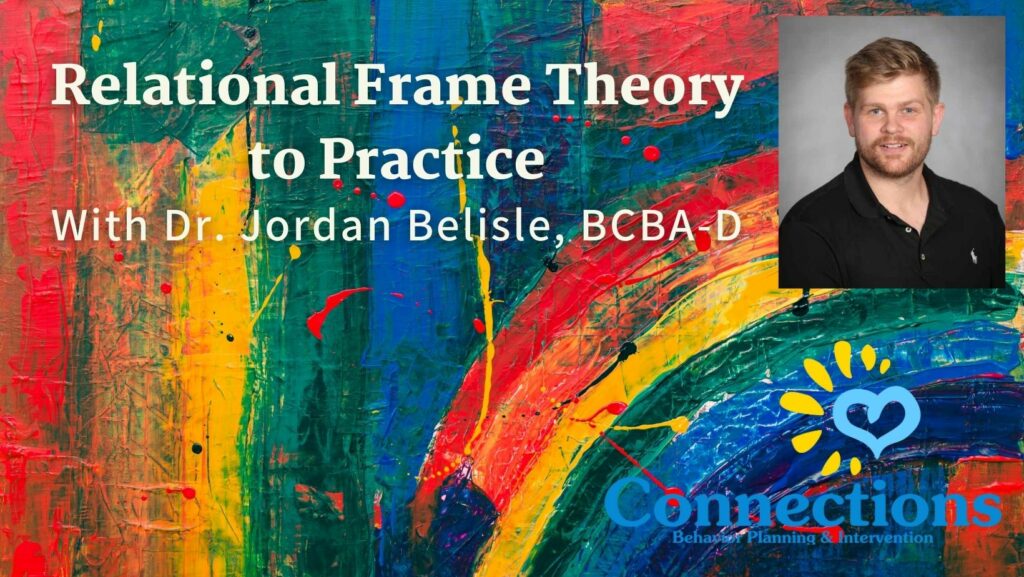Connections Behavior Planning and Intervention is excited to announce the return of Dr. Jordan Belisle, BCBA-D, to discuss applying Relational Frame Theory within treatment of young learners on the Autism Spectrum!
See Dr. Belisle’s other RFT and ACT content here.
Abstract:
In this Part 2 of a bigger discussion on applying scientific models in treatment, we build on what we learned from Dr. Belisle’s first webinar (if you would like more time on the basics of RFT, consider checking this one out first, or bundle both of these with a discount here). This part of the presentation will dive into RFT as a treatment model, with deeper discussion about how to apply the treatment model in practice. The talk is divided into 3 main parts. First, establishing non-arbitrary relational responding in early learners with autism, including the integration of multiple sense modes. Second, moving to arbitrarily applicable relational responding, including categorical relating and matching tastes. This section will further focus on transformations of stimulus function consistent with a verbal behavior model of learning. Finally, we will discuss intelligence and what RFT could mean in this space along with recent data obtained from our on-campus research clinic.
About the Presenter
Dr. Jordan Belisle is a Board Certified Behavior Analyst and Assistant Professor at Missouri State University. As a second year professor, Belisle has published over 45 peer-reviewed papers and book chapters, applying advances in our understanding of human language and cognition to improve the lives of people. This work has included research on neurological disabilities such as autism as well as behavioral addictions and applications of behavior science to solve climate change. Since joining the faculty at Missouri State University, Belisle’s work has focused on developing new models of human language learning, including Relational Density Theory, that describes the apparent self-organization of relational verbal behavior. His research lab seeks to provide research opportunities for students and to collaborate at an international scale with practitioners looking to infuse science within practice. Behavior Analysis tomorrow cannot be the same as yesterday.
Learning Objectives
Participants at this event will:
- Describe different strategies for promoting non-arbitrary and arbitrary forms of relational responding
- Discuss the importance of transformations of stimulus function in terms of the verbal operants
- Describe how RFT models account for intelligence with direct applications for learners with autism
Number of CEU’s available: 2.0 BACB CEU’s
Cost to Attend: $39.99 (includes registration and CEU’s)
For questions, challenges with registration, or any other needed information, please contact Dusty, Director of Continuing Education and ACE Coordinator for CBPI, LLC, at continuingeducation@connections-behavior.com.
Connections Behavior Planning & Intervention, LLC, is a BACB-Approved ACE Provider (Provider # OP-17-2781). The BACB does not directly sponsor or endorse this event, its speakers, or its content.
JANUARYSALE
Login to Register
Please log in or register before registering for On-Demand items.

